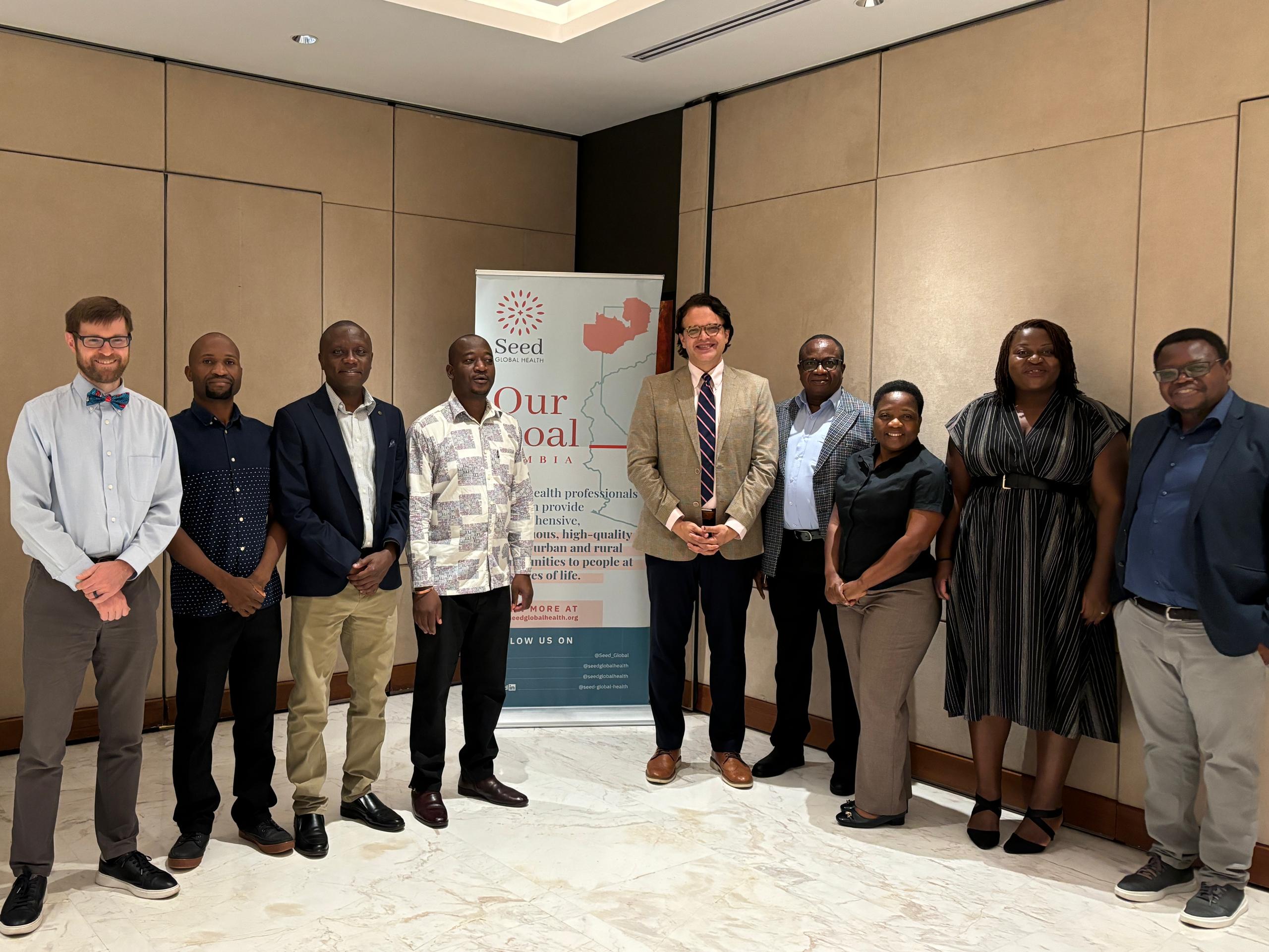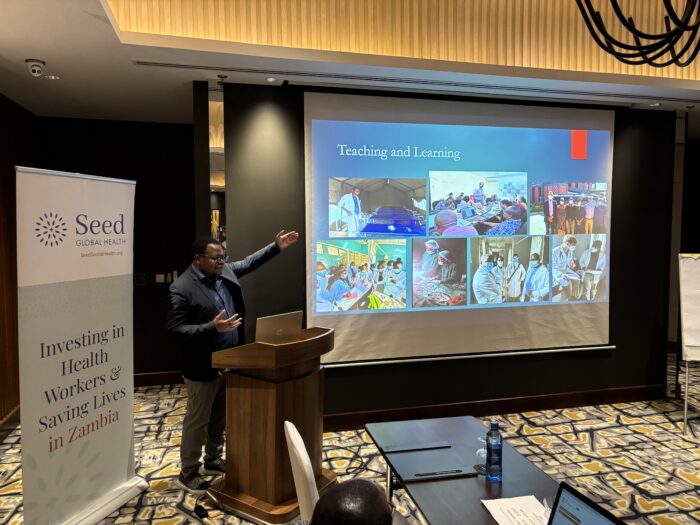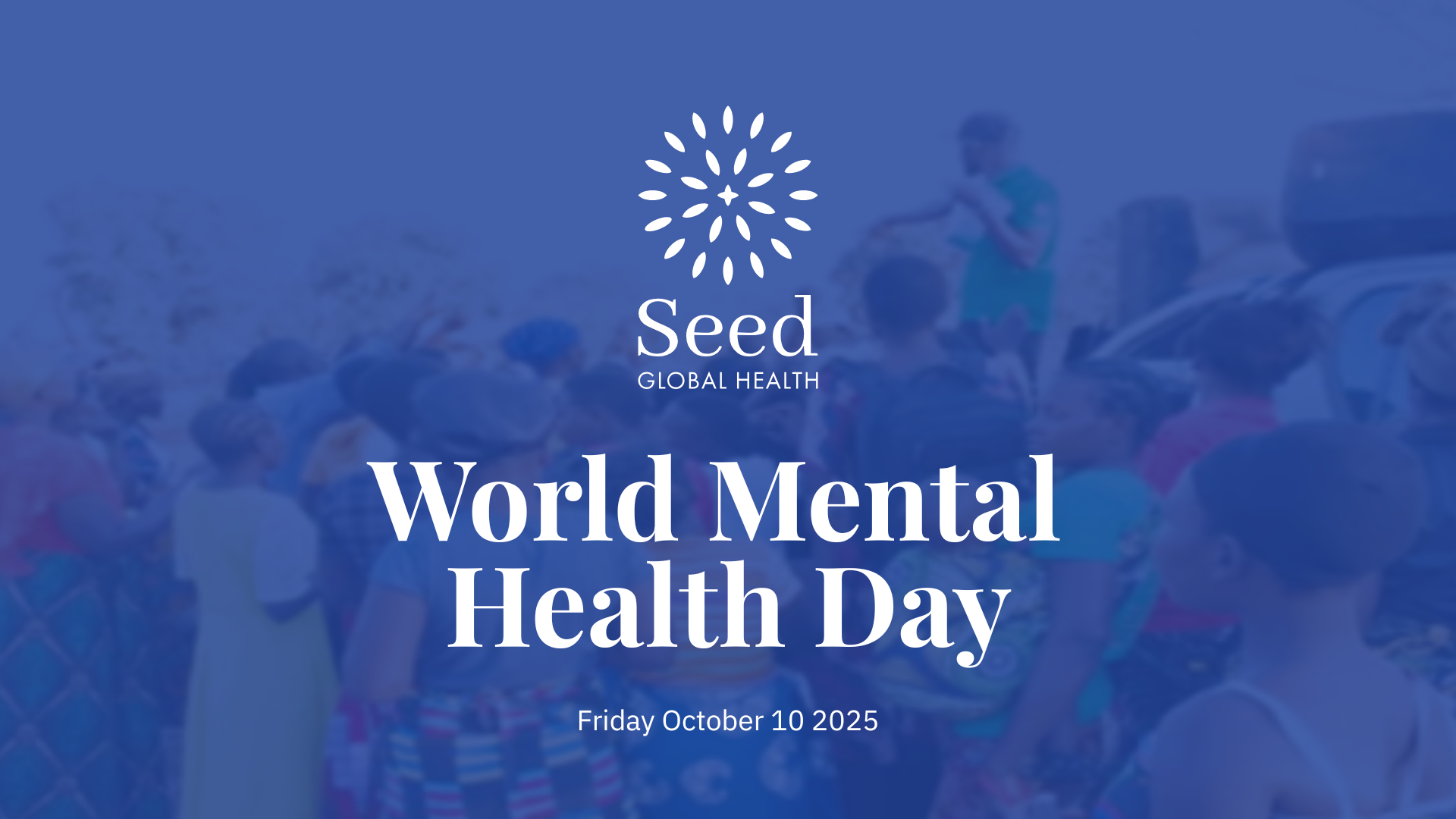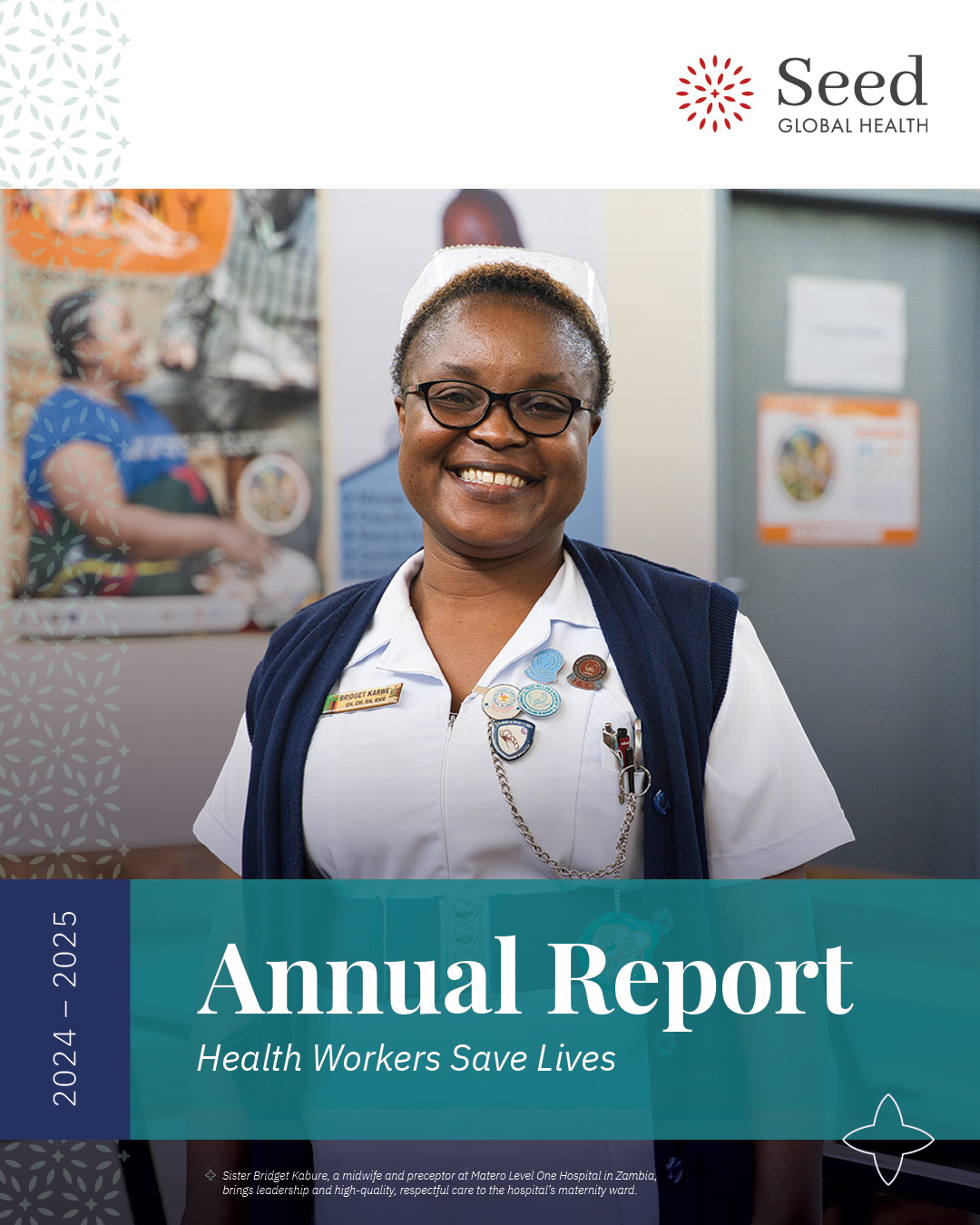
Family Medicine Learning Exchange
Seed convenes university partners from Malawi and Zambia to strengthen family medicine education.
Seed Global Health recently convened a three-day meeting to foster collaboration and knowledge exchange between the family medicine programs at Kamuzu University of Health Sciences in Malawi and the University of Zambia (UNZA). The gathering supported the growth of these academic departments and their contributions to primary healthcare education in the region.
Dr. Modai Mnenula, faculty and one of the first family medicine graduates of Kamuzu University, Malawi, emphasized the importance of sharing strengths and addressing challenges collaboratively. “This meeting has opened a new chapter in terms of how we can work together to make a real difference. When we share challenges, it gives you the strength as together we can work out solutions that could be applicable to both countries and help both countries advance. In looking at different areas of focus it creates opportunities to build up each other’s academic program,” Dr. Modai Mnenula said.
Eleven faculty members from both institutions and Seed staff participated in the meeting, discussing key areas such as teaching methodology, student support, faculty development, and the role of family medicine in building a climate-resilient health workforce.

Following the meeting, participants visited community hospitals in Lusaka to observe the training of family medicine doctors and assess the impact of Seed’s collaboration on healthcare delivery.
“As we watch these two academic programs in family medicine develop in neighboring countries and in partnership with Seed Global Health, we remain committed to ensuring that we don’t compromise on quality in training health care workers to provide care at the community level,” said Bassim Birkland, Seed Global Health country director in Zambia and family medicine faculty member at UNZA. “This meeting demonstrated our commitment to shared learning and support of faculty and students.”
Both programs have not only trained family doctors but have also nurtured a sustainable future for family medicine by enabling graduates to take on faculty positions within their respective universities.
Studies have consistently shown that countries with robust primary healthcare systems centered on skilled family medicine physicians achieve better patient outcomes, higher patient satisfaction, and lower costs. The family medicine master’s degree programs in Malawi and Zambia equip their graduates to address the complex health challenges of individuals within their social, cultural, and environmental contexts.
Beyond daily bedside training of family medicine physicians, Seed supports the growth of academic departments through faculty development, classroom infrastructure, and other initiatives.
As part of its 2030 strategy, Seed plans to continue supporting the growth of family medicine in Malawi and Zambia over the next five years. By training family doctors to deliver comprehensive community based clinical care, Seed aims to improve healthcare outcomes and strengthen primary healthcare systems in these countries.

